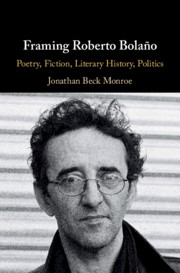Conclusion - From the Known to the Unknown University
Published online by Cambridge University Press: 09 September 2019
Summary
The question of the prose poem, of Bolaño’s prose poem novels, is the question of literature itself and its synecdochic powers of representation. In his late short story, “Photos,” Bolaño offers a glimpse of a growing recognition, near the end of his life, of the extent to which his literary worlds had remained limited to Europe and the Americas. What remains clear, in an age increasingly dominated by visual media, is that his work speaks passionately against forgetting those who will never be represented, read, made visible. That sustained awareness of the marginal, the neglected, the forgotten, is one he builds into his work at every turn, a core value that merits affirmation and celebration, merits even, perhaps, a certain recognition as exemplary, as representative, as synecdochic, as of a part searching for a greater, more capacious, more inclusive whole. What is called poetry, prose, is not one thing, Bolaño’s work teaches us, but many things, always in process, always becoming historical, its identity not singular but multiple. Situated not between but among genres, discourses, media, his prose poem novels encourage and embrace a paradoxical distinction, a poetics not of opposition but of apposition, a poetics for the twenty-first century.
Keywords
Information
- Type
- Chapter
- Information
- Framing Roberto BolañoPoetry, Fiction, Literary History, Politics, pp. 198 - 207Publisher: Cambridge University PressPrint publication year: 2019
